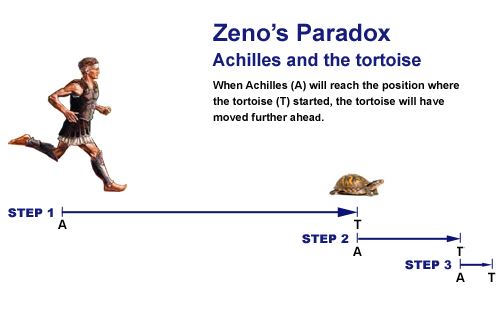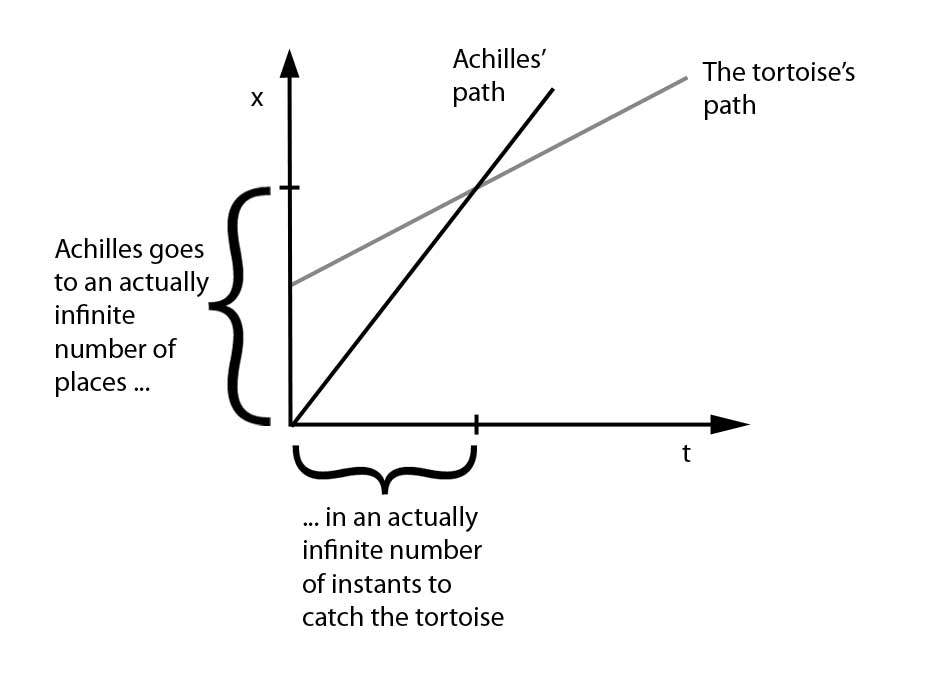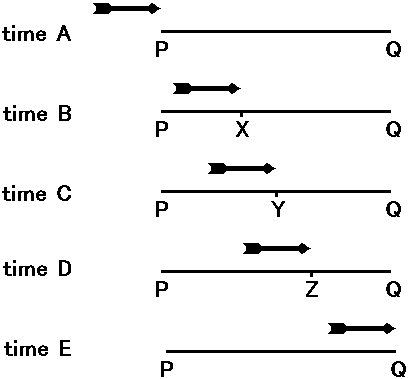Reference




OpenAI's Answer
The Paradox of the Arrow, attributed to Zeno of Elea, revolves around the concept of motion and challenges our understanding of it. Zeno's argument is a part of his broader collection known as Zeno's paradoxes, which are intended to support the idea that contrary to our sensory beliefs, motion and change are merely illusions.
Explanation of the Arrow Paradox
Zeno's Arrow Paradox contends:
- At any single instant of time, an arrow in flight is motionless.
- If the arrow is motionless at every instant of its flight, then it is motionless overall.
- Therefore, the arrow cannot be moving.
In other words, Zeno argues that for an object to be in motion, it must change the position it occupies. However, at a specific instant, the arrow occupies a particular position and remains there momentarily. If at every instant the arrow is stationary, then it never moves at all.
Understanding the Concept of Motion
Zeno's paradox challenges the nature of motion by questioning our understanding of time and space. The paradox implies that motion is impossible because time can be divided into an infinite number of instants, each of which does not involve any movement. Consequently, no real change or movement can occur.
This paradox has sparked significant discussions among philosophers and mathematicians, leading to various interpretations and solutions:
-
Calculus and Infinitesimals: Modern mathematics, especially the development of calculus, provides a resolution to the paradox. By understanding motion as a continuous change over time, rather than as a series of discrete instants, calculus allows mathematicians to describe the rate of change (velocity) and the accumulation of these rates (distance).
-
Relativity of Motion: Zeno's paradox also touches on the concepts of relativity within physics. The idea that an object could be motionless in any given instant but still be in motion overall can be reconciled by modern physics' understanding of spacetime.
-
Philosophical Implications: Zeno's paradox continues to be relevant in philosophical discussions about the nature of time, space, and reality, questioning how we perceive and rationalize motion.
For more detailed information, you can refer to:
Here is a visual summary of the paradox:

This paradox remains a thought-provoking topic that bridges the domains of philosophy, mathematics, and physics, illustrating the complexity of interpreting fundamental concepts like motion.
Follow Up
Related
What significant event triggers Emily's psychotic episode leading her to harm Oliver?
What is the historical evolution of darts as a sport?
Why is natural selection considered necessary for the development of complex life?
How many drivers retired from races during the 2002 Porsche Supercup season?